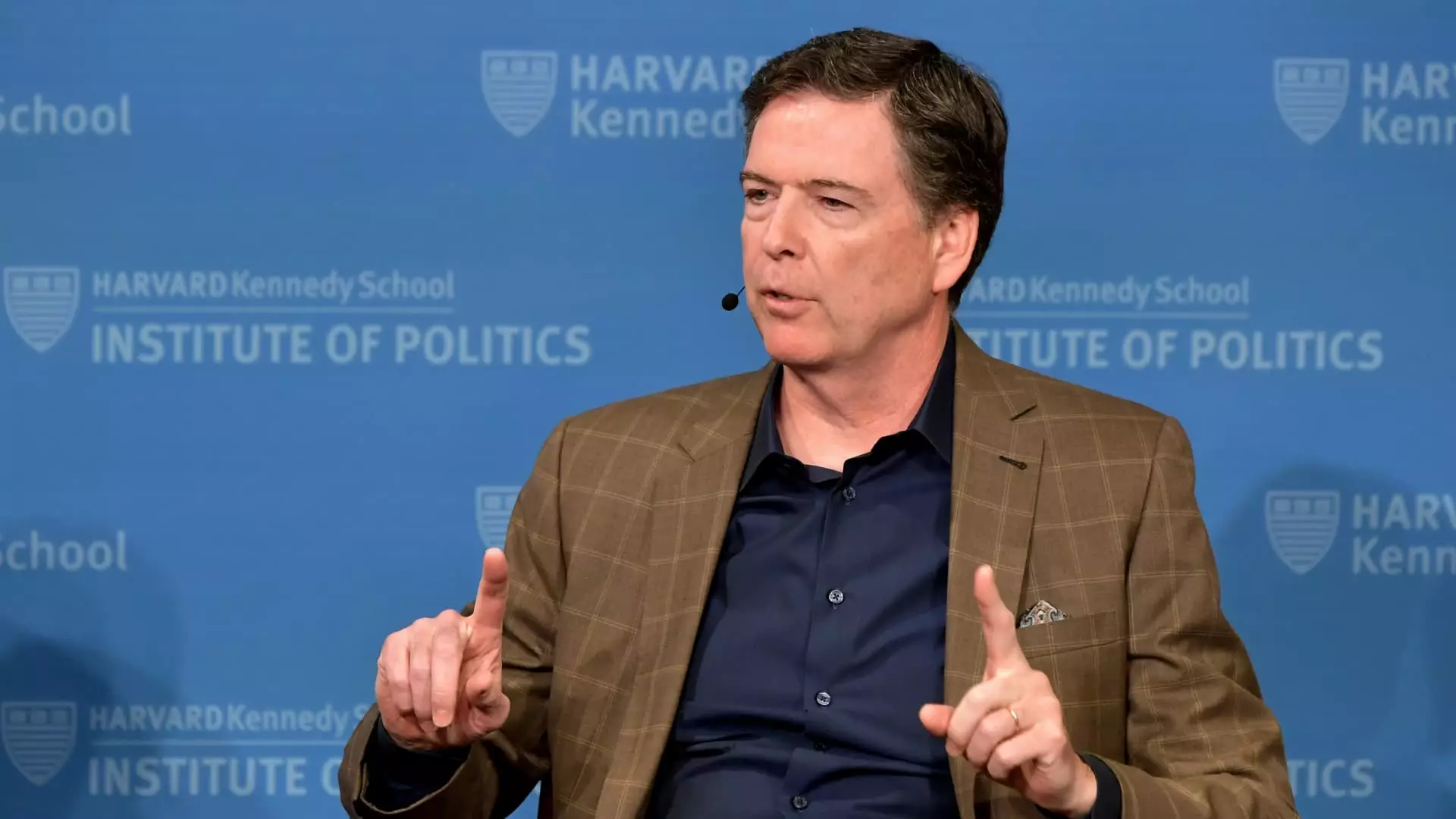In a politically charged environment, words can wield tremendous power, and the recent controversy surrounding former FBI Director James Comey underscores this reality. While we exist in an age where social media dominates communication, it is crucial for individuals—especially those with public platforms—to recognize the ramifications of their statements. Comey’s now-deleted Instagram post, meant to be innocuous, spiraled into an explosive debate that reveals the fractured nature of our political landscape. The interpretation of his words, which some viewed as a signal for violence against President Donald Trump, is a poignant reminder of how easily language can ignite a fire.
The specific post featured numbers that some interpreted as shorthand for a deadly intention—“eighty-six,” a colloquial phrase meaning to eliminate someone. Critics, including government officials and GOP lawmakers, immediately jumped on the perceived implications, constraining Comey in a narrative that portrays him as a villainous figure calling for murder. Yet, within this maelstrom, we must ask ourselves: How far can one go in interpreting language before it becomes irresponsibly sensationalized?
Power Structures: The Rise of Polarization
The ensuing reactions to Comey’s post reveal the intense polarization characterizing today’s political climate. Homeland Security Secretary Kristi Noem claimed the former FBI director’s words were an overt threat to the President, equating Comey’s expression with a heightened call to violence. Such accusations do more than vilify an individual; they contribute to an atmosphere where any dissenting voice is met with hostility and condemnation. This event is not just a minor hiccup in the vast sea of political dialogue; it’s a diagnostic tool that exposes the fissures in our society.
Donald Trump Jr.’s comments further illustrate this rhetoric’s escalatory potential, as he asserted that Comey’s post constituted a casual demand for his father’s death. Statements like these reveal a pattern of reactionary violence that exists not just among the populace but within the very fabric of political discourse. These polarizing opinions only serve to widen divides rather than foster any possibility for understanding or dialogue.
The Role of Accountability: An Unequal Playing Field
What also becomes evident amid all this furor is the glaring disparity in accountability among public figures. Comey’s denouncement of violence and his claim that he intended no threat comes off as insufficient given that he holds a significant history in the FBI and law enforcement. While Comey insists he was unaware of the violent associations linked to his post, this raises questions about the due diligence required of public figures. Shouldn’t individuals who long endured the rigors of political life recognize the subtleties embedded within their words?
Yet the demands for accountability seem to be directed more aggressively at Comey than at those who exploit public fear and escalate tensions for their own gain. Calls from Republican circles for Comey’s arrest or even a raid on his home feel alarmingly disproportionate when juxtaposed with the problematic dialogue espoused by numerous polarizing political figures. Is this not a blatant display of hypocrisy, where the line between free speech and incitement is blurred?
The Path Forward: Finding Common Ground Amid Chaos
Ultimately, what is at stake is not just Comey’s reputation, but the integrity of political discussion and expression in this nation. The broader implications of labeling someone as a threat without context or thorough understanding are profound. It reveals a deeper malaise within our polity, one that thrives on outrage rather than reasoned debate.
Therefore, as a society, we must collectively advocate for a return to more substantive political discourse. Instead of racing toward sensationalism with pitchforks at the ready, we need to embrace the nuances that lie in the words we share and the intentions we assign to them. After all, meaningful dialogue amidst differences is the cornerstone of a thriving democracy, steering us away from the abyss of enmity and toward pathways of mutual understanding and collaboration. Through this lens, we might just create a political landscape that encourages discourse rather than destruction.


Leave a Reply